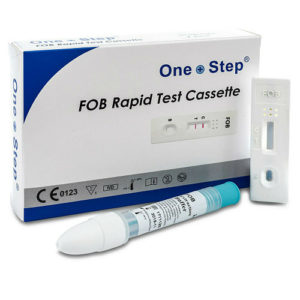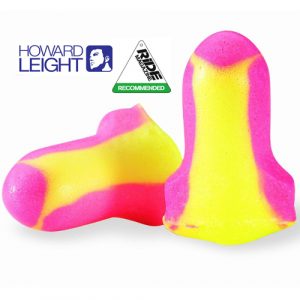Bowel cancer, also known as colon cancer, is a very common form of cancer. It is important to detect bowel cancer early, to save a lot of pain later. An early detection increases the probability of a successful treatment. In fact, for patients who get bowel cancer treated as soon as possible, the survival rate is higher than 90 percent.
Almost 95 percent of bowel cancers develop from a benign tumor called polyps, which grows within the colon. Usually, bowel cancer doesn’t cause any pain, and often stays undetected for several years till it becomes malignant. A simple blood test can detect bowel cancer at an early stage.
What are the Symptoms of Bowel Cancer?
Bower cancer has three main symptoms:
- Blood in the stools
- Changes in the bowel habit such as frequent and looser stools.
- Abdominal pain.
These symptoms are very common and do not necessarily mean that you have bowel cancer. Blood in the stools is caused usually by piles (or hemorrhoid) and changes in bowel habit or abdominal pain can be caused because of food poisoning or unhealthy eating habits.
In the United Kingdom, over 7 million people suffer from blood in the stools each year, and more suffer from changes in the bowel movement or abdominal aches – so, clearly, these symptoms are far too common to specifically indicate bowel cancer.
Also, these symptoms are commonly seen in people over the age of 60. Bowel cancer is also seen mostly in older people over the age of 60, so these symptoms become important if they persist as one gets older. The symptoms of bowel cancer are very subtle, and it is possible that you may not feel really unwell because of them.
The following symptom combinations may indicate bowel cancer:
- Forceful changes in bowel habits which cause people to go to the toilet more often, pass looser stools, with blood appearing on the stools.
- Forceful changes in bowel habits, with abdominal pain, but without blood in the stools.
- Blood in the stools, but no other symptoms usually associated with piles or haemorrhoids such as pain, discomfort, soreness, itching and so on.
- Abdominal pain, bloating, discomfort and so on, leading to a reduction in food intake and noticeable weight loss.
The FOB Test for Bowel Cancer
The Faecal Occult Blood Test (or FOB Test) helps to detect bowel cancer early. This test should be performed by anyone over the age of 40, and even better if one gets this test done earlier than that, especially if there is a history of bowel cancer in the family.
The FOB test detects the smallest instance of blood in the stool which may not be visible to the naked eye. If blood is detected in the stool while doing this test, it is important to consult a doctor immediately, who will find out the reasons for the same.
The FOB test does not require you to restrict your eating habits while taking it and can be done any time of the day. The results of the FOB test take minutes to be made available, and are easy enough to get in a hospital. There is no need to send the samples to a laboratory.
What Happens in the FOB test?
In the FOB test, a small sample of the stool is taken with an applicator and put into a tube that is pre-filled with a developer solution. Then, a mixture is made, out of which a drop is placed on a test strip for the purpose of evaluation.
Is the FOB test reliable?
The FOB test is certainly reliable and detects only human blood. This means it is unaffected by the diet taken before the test.
Yes, unlike most home test kits, our fecal occult blood test is designed to specifically detect only human blood – which means it is unaffected by diet.
What can you learn from the FOB test?
If the FOB test turns out to be positive, this tells you that there is blood in your stool. So, you will have to visit a doctor at the earliest. Your doctor will conduct further, more extensive tests and investigate if you have bowel or colon cancer.
Lifestyle Factors and Bowel Cancer Risk
Certain lifestyle choices can increase your risk of developing bowel cancer. You should be aware of these factors and take steps to minimize your risk:
- Diet: A diet high in red meat and processed meats has been linked to higher bowel cancer rates. Aim to limit these foods and eat more fruits, vegetables, and whole grains.
- Obesity: Carrying excess weight, especially around the abdomen, raises bowel cancer risk. Maintain a healthy weight through diet and exercise.
- Alcohol: Excessive alcohol intake is a risk factor. Limit alcoholic drinks to moderate levels.
- Smoking: Like many cancers, smoking significantly increases the likelihood of developing bowel cancer. If you smoke, make a plan to quit.
- Inactivity: Leading a sedentary lifestyle with little physical activity appears to promote bowel cancer growth. Aim for 30-60 minutes of exercise daily.
Making positive diet and lifestyle changes can help reduce your bowel cancer risk. However, some risk factors like age and family history cannot be modified.
Screening and Early Detection
Regular screening is crucial for early detection and successful treatment of bowel cancer. There are several options:
- Fecal occult blood test: As mentioned, this simple at-home test can detect hidden blood in the stool, an early sign of bowel cancer or polyps.
- Colonoscopy: A doctor uses a thin tube with a camera to visually examine the entire colon and rectum for polyps or cancer. Polyps can be removed during the procedure.
- CT colonography: Also called a virtual colonoscopy, this uses X-rays and computers to produce images of the colon and rectum.
Most medical organizations recommend beginning regular bowel cancer screening around age 45 for people at average risk. However, your doctor may advise earlier or more frequent screening if you have other risk factors like a family history of bowel cancer.
Prompt medical evaluation of any potential bowel cancer symptoms is vital, even between scheduled screenings. Don’t ignore changes just because you recently had a negative screening test.
What To Do If You Have Symptoms
If you experience persistent signs that could indicate bowel cancer, such as bleeding, abdominal pain, or changing bowel habits, make an appointment with your doctor right away. They will evaluate your symptoms and risk factors, and likely order some diagnostic tests.
While most cases turn out to be caused by non-cancerous conditions like hemorrhoids or irritable bowel syndrome, you should never assume this or delay seeing your doctor. Prompt medical attention and early detection provides the best chance at effectively treating bowel cancer if it is present.
Prepare for your appointment by writing down all your symptoms, when they started, and any potential risk factors. This will help your doctor determine the necessary diagnostic tests to either rule out or confirm bowel cancer.
Photo “Pain” by Anthony Cunningham for Zoom Health
Zoom Health is a leading UK supplier of Home Health Tests and Earplugs






